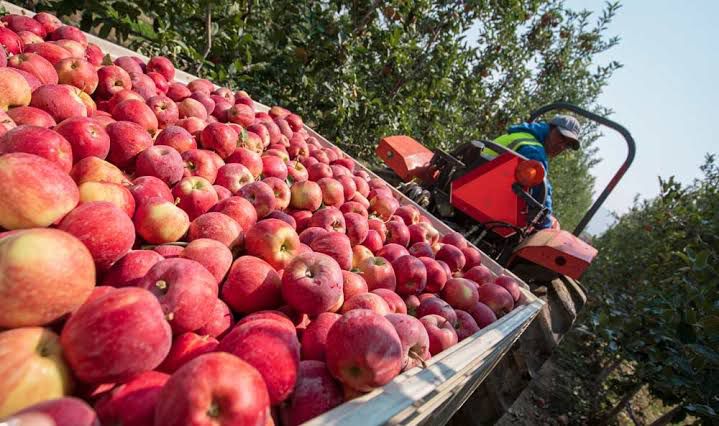Empowering Rural Communities Through Agribusiness Innovation
The impact of agriculture on a society’s economic growth cannot be overstated. The West African Subregion has been involved in agriculture for decades, albeit in its crude and relatively unrefined form. However, in this form, it contributed heavily to the growth of individual societies, especially Nigeria.
The 21st Century has shown immeasurable potential for growth in the agricultural sector, thus heralding the rise of agribusiness. Agribusiness holds numerous possibilities for economic breakthroughs for rural communities, as it offers farmers and traders the opportunity to sell their produce at reasonable prices and earn handsomely from it, boosting the local economy and contributing to the growth of the national economy at the same time.
What is Agribusiness?
Agribusiness encompasses the economic sectors for farming and farming-related commerce. It involves all the steps for getting agricultural goods to the market, including production, processing, and distribution. The industry is a traditional part of any economy, especially for countries with arable land and excess agricultural products for export.
Agribusiness is a combination of the words “agriculture” and “business. ” It refers to commerce in farming and farming-related activities. The term “agribusiness” simply refers to the breadth of businesses engaged in all aspects of agriculture, from providing inputs such as seeds and fertiliser to farming, processing, marketing, distribution, and retail sales. It emphasises that sustainable agriculture needs to be viewed as a business.
Potential Of Agribusiness In Rural Communities
In Nigeria, where rural communities are often left out of government intervention and support programs, most residents have turned wholly to agriculture and have developed relationships with traders and firms to help them expand their products to more significant markets. One fascinating aspect of agribusiness is that it is tied to the food industry and other industries that depend on agricultural produce as fodder or a source of raw materials for their production processes.
The potential inherent in agribusiness is almost unquantifiable, as farmers now have the opportunity to sell more of their produce instead of giving it away at below-par prices or being unable to sell all of it. Food companies (FMCG) involved in agribusiness take farm produce and convert it into consumables in high demand from the public, generating profit for themselves and encouraging agriculture in rural areas. The wealth agriculture brings to societies can never be spoken enough about.
Historically, agriculture has contributed more to Nigeria’s GDP than any other sector, contributing as much as 25.88% to the national GDP in 2021. With agriculture accounting for at least 30% of jobs in the country as of 2020, the importance of agriculture to the growth of the national economy is an issue that should be paid proper attention to, especially in a nation like Nigeria, where the unemployment rate is projected to rise to an average of 4.52% in 2024. These statistics might seem harrowing, but agribusiness can fill this gap by a very large percentage.
Agribusiness is an aspect of the economy with immense potential. It can serve as a primary source of revenue and forex for individuals and the government, play a significant role in boosting the quality of life for citizens involved in production, processing, and distribution, and help stem the aggressive inflation rate prevalent in the country.
These agribusiness potentials can be unlocked in the following ways:
- Improved infrastructure: Infrastructure is a cornerstone for unlocking the potential of agribusiness in rural Nigeria. This encompasses many enhancements, including improved transportation networks and maintained roads and railways, which facilitate the timely movement of agricultural inputs and outputs, reduce post-harvest losses, and increase market access.
Another essential facet of infrastructure that needs to be improved for agribusiness to thrive is energy supply, as reliable access to electricity is vital to powering agricultural processing facilities, cold storage units, and irrigation systems, boosting productivity and reducing waste. Communication systems must also be overhauled as improved telecommunications infrastructure enables farmers to access market information, weather updates, and agricultural extension services, empowering them to make informed decisions.
Irrigation facilities must also be provided and upgraded, as adequate water resources are crucial for ensuring consistent crop yields, especially in drought-prone regions. Investments in irrigation systems, such as dams, canals, and drip irrigation, can help mitigate the impacts of climate variability.
Adequate storage infrastructure must also be provided, as it is vital for preserving agricultural products, preventing spoilage, and enabling farmers to sell their produce at optimal prices.
2. Enhanced access to finance: This is another critical factor in unlocking the potential of agribusiness in rural Nigeria. This refers to providing farmers and agribusiness entrepreneurs with the necessary financial resources to invest in their operations. This can include loans, grants, and other forms of financial assistance. By increasing access to finance, rural farmers can invest in improved seeds, fertilisers, equipment, and infrastructure, leading to higher yields and enhanced produce quality.
Additionally, access to finance can enable agribusiness entrepreneurs to expand their businesses, create jobs, and contribute to the overall economic development of rural communities.
3. Improved Agricultural Extension Services: These services are also crucial for unlocking the potential of agribusiness in rural Nigeria. By providing farmers with access to essential information, training, and resources, these services can bridge the knowledge gap and empower rural communities to adopt modern agricultural practices. This includes disseminating information on improved seeds, fertilisers, and pest control methods and facilitating access to markets and financial services. Effective extension services can also foster collaboration between farmers, researchers, and government agencies, leading to innovative solutions to local agricultural challenges.
Agribusiness holds immense potential and can serve as a significant source of revenue and forex for Nigeria’s ailing economy. We are working significantly by exporting and trading valuable cash crops to international markets to contribute to the economy, create jobs, and improve the quality of life.




